The Work We Do: Community Support
February 15, 2024
Making it through the holiday season can be especially challenging for people who are already facing mental or physical health challenges. The 1199 members at Upper Manhattan Mental Health are dedicated to providing a social safety net in the community which helps to ease the burden. The work of these frontline caregivers takes many forms. They help make outpatients’ home environments healthier and safer, for instance, as well as communicate with doctors and New York City agencies to make sure their clients access all the assistance they deserve. As part of the Health Home program run by NYC Health and Hospitals, 1199 Care Coordinators and Social Workers are there to help people better understand and manage their conditions—as well as identifying all the services and programs that meet their physical, mental health, and social service needs.
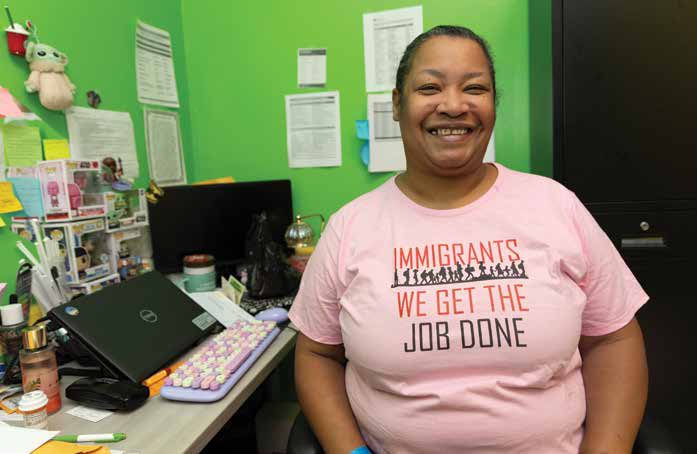
1. “One of my first cases when I started here seven years ago,” recalls 1199 Delegate and Senior Care Manager Edwina Rivers, was a man who lived alone in a sixth-floor walk-up and was receiving outpatient psychiatric treatment. “He had very little income coming in and was about to be evicted.” Because the man was unable to climb up and down the stairs very often to get his mail, he didn’t get the notification that he needed to re-certify for his Section 8 housing subsidy, so it was cut off, and his rent was not being paid.
“I was able to get him on the medication that he needed and start to help him get his life back,” Rivers says. “Soon after that, he called me to say that the bailiffs were at his door preparing to evict him. I was able to speak to them and luckily, they were reasonable. We went to court and eventually got public assistance to pay off his back rent. We were also able to get him Supplementary Security Income.
“Care managers are problem solvers,” adds Rivers. That’s why she’s been active in the Union’s Medicaid Equity campaign to press New York State Governor Kathy Hochul to increase Medicaid reimbursement rates instead of prioritizing a “rainy day” fund. “We have to unite and keep fighting to close the Medicaid gap. No matter how many times a week I see a client, we will only be reimbursed for one ‘core service’. The recommended caseload is 45 people, and I usually have 52 or 53.”
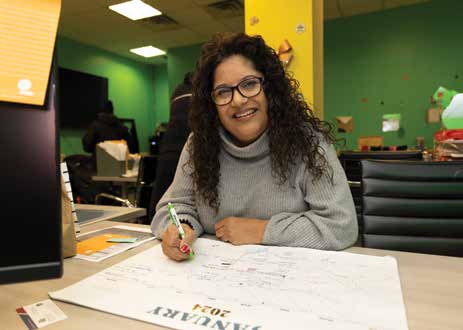
2. 1199 Social Worker, Priscilla Fernandez, is a bilingual therapist specializing in children and adolescents. “It is nice when you are able to make a connection and see a teenager grow and mature and come into their own. Sometimes, I work with multiple kids in the same family.
“You have to be really openminded to work in this field. It is important to understand both the struggles people face, and the strengths that they have,” she says. Families might not have money to pay for childcare, but they form relationships with neighbors and rely on family members for help.
Some families are initially reluctant to work with Fernandez and her team; they may have had previous visits from social services and be fearful that she could remove their kids from the home.
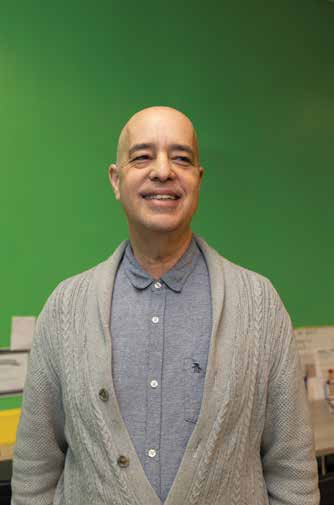
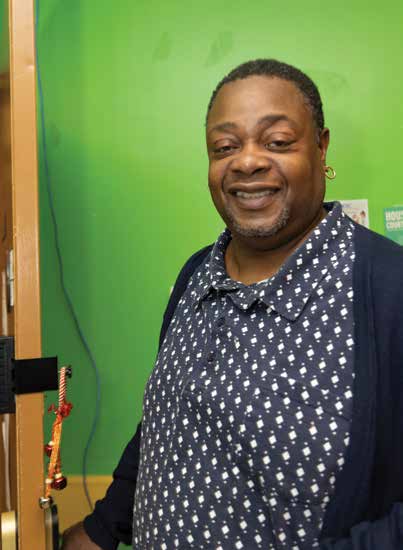
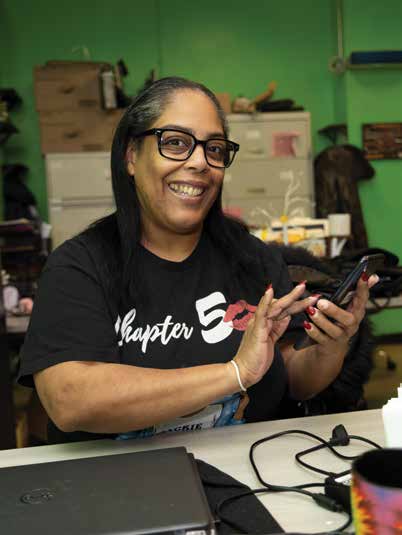
“I went to school so that I could work with clients one-to-one in their community,” she says. It was rewarding to meet a person with multiple health challenges recently, who had difficulty doing household chores. Alcantara was able to complete the paperwork to get the woman a Home Health Aide paid for by Medicaid.
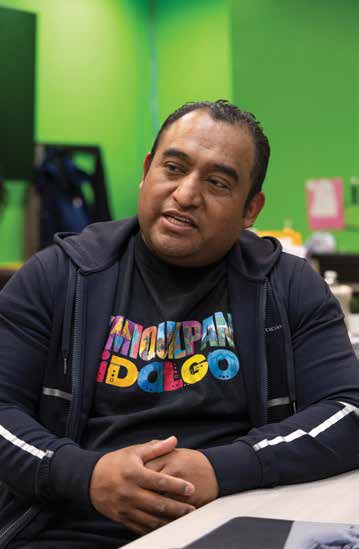
The work is demanding—but the success stories are sweet. “I was working with a woman recently who had moved away from New York to start a new life with her husband,” he says. “Sadly, her husband passed away within a month of their arrival. She came back to New York with very little and was depressed, and about to lose her home. I helped her to understand that she was eligible to apply for Supplemental Security Income (SSI) as well as her husband’s pension. She is now much more positive and healthy. We applied for an apartment for her in Brooklyn, and she should be moving in soon.”
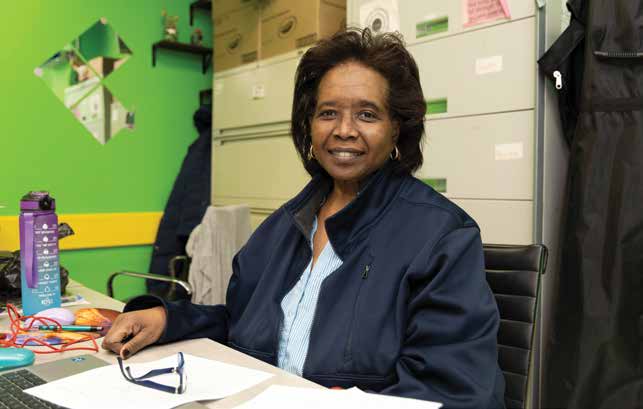
7. “I like my job because I don’t have to come into the office every day. I worked for 40 years at Metropolitan Hospital in East Harlem, says Sharon Brown-Gross, an 1199 Case Manager, who now works with people with severe mental health challenges. Some of her clients are parolees, or people who have recently returned home from in-patient psychiatric care.
“Many of the people see do not believe they need mental health services,” she says, but there are many success stories. “I saw a gentleman with severe substance abuse problems, who has now been sober for well over two years. I never thought he would get there, but recovery is definitely possible. You just have to do the work. We were one piece of the puzzle that helped him get well.”

